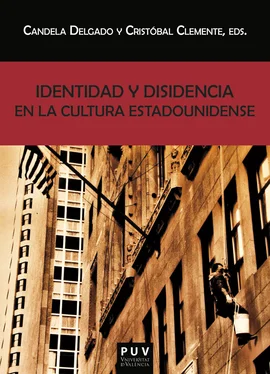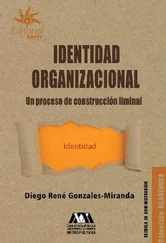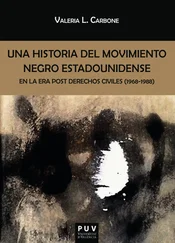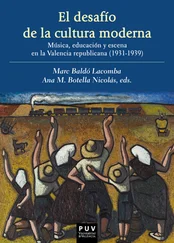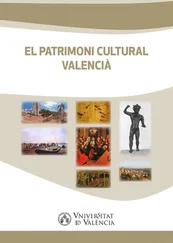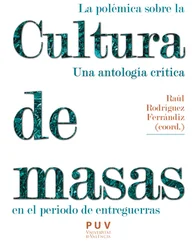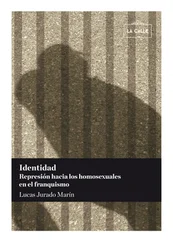El fecundo imaginario del Sur no debería alcanzar tal nivel de protagonismo en la identidad regional hasta el punto de bloquear la identidad del individuo contemporáneo, simplemente por un deseo de complacer al discurso mayoritario nacional (Egerton, 25). El sureño debe reapropiarse de los símbolos que los representan, para redefinirlos en un intento de ser fieles y justos con el pasado, conformes pero libres de complejos de inferioridad. Así podrán observar la producción constante de nuevos emblemas, contenedores de la reciente historia sin el lastre de las antiguas deshonras.
Igualmente, la tragedia de los recientes ataques terroristas del 11 de septiembre crearon de manera inmediata un sentimiento de unión que ha eclipsado las diferencias y discursos regionales (Moss, 234). Por lo tanto, la afirmación del Presidente Obama en su discurso de investidura de las elecciones del año 2012 contienen una verdad innegable pero que requiere un matiz; el Presidente declaró: “Esta noche, más de 200 años después de que la antigua colonia obtuviera el derecho a definir su propio destino, la tarea de perfeccionar nuestra unión da un paso al frente” (). Resulta necesario añadir que la unión Norte/Sur contiene aún fracturas significativas y este residuo no beneficiará a ninguno de los elementos de la dualidad. El esfuerzo por preservar el folclore regional en el siglo XXI debería incorporar la coexistencia de la diversidad nacional, a través de una fluctuación de mutua retroalimentación ideológica y cultural. Si no se acepta este método, el Sur puede recaer en una “locura nostálgica” (Wills, ); resurgiendo así los peores aspectos del Sur bajo una etiqueta de errónea dignidad territorial.
Bibliografía
Ayres, Brenda. The Life and Works of Augusta Jane Evans Wilson, 1835-1909 Farnham: Ashgate, 2012.
Beecher Stowe, Harriet. La cabaña del tío Tom . Trad. Andrés Avelino Orihuela. Barcelona: S.M, 1853.
Betts, Doris. “Whispering Hope”. Image Journal . 4 febrero de 2013. http://imagejournal.org/page/journal/articles/issue-7/betts-essays
Boles, John B. The South Through Time: A History of an American Region. Vol. II . Nueva Jersey: Prentice Hall, 1995.
Brooks, Gwendolyn. “Still Do I Keep my Look, my Identity…”. A Distilled Life: Gwendolyn Brooks, Her Life, Poetry and Fiction . Ed. Maria K. Mootry y Gary Smith. Urbana: University of Illinois Press, 1989.
Carter, Hodding. Their Words were Bullets: The Southern Press in War, Reconstruction, and Peace . Georgia: University of Georgia Press, 1969.
Cash, W. J.. The Mind of the South. Nueva York: Random House, 1941.
Channing, Steven A. “Slavery and Confederate Nationalism”. From the Old South to the New: Essays on the Transitional South . Ed Walter J. Fraser, Jr. y Winfred B. Moore, Jr. Westport: Greenwood Press, 1981.
Chesnut, Mary Boykin. A Diary from Dixie . Ed. Ben Ames Williams. Cambridge: Harvard University Press, 1980.
Clark, William Bedford. “The Serpent of Lust in the Southern Garden”. Ed. Werner Sollors. Interracialism: Black-White Intermarriage in American History, Literature and Law . Oxford: Oxford University Press, 2000.
Cobb, James C.. Industrialization and Southern Society 1977-1984 . Lexington: University Press of Kentucky, 1984.
Crane, Stephen. El rojo emblema del valor . Trad. Micaela Misiego. Madrid: El País, 2004.
Egerton, John. The Americanization of Dixie. The Southernization of America . Nueva York: Harper's Magazine Press, 1974.
Faulkner, William. The Unvanquished . Faulkner: Novels 1936-1940 . Nueva York: Library of America, 1990.
_____. “Una rosa para Emily”. Trad. Cesar Cecchi. Antología del cuento moderno . Eds. César Cecchi y María Luisa Pérez. Santiago de Chile: Editorial Universitaria, 1970.
Flynt, Wayne. Dixie’s Forgotten People: The South’s Poor Whites . Bloomington: Indiana University Press, 2004.
Hannah, Barry. “Out-Tell, the Teller”. Long, Last Happy: New and Selected Stories . Nueva York: Grove Press, 2010.
Harris, Joel Chandler. Life of Henry W. Grady: Including his Writings and Speeches . Nueva York: Cassell Publishing Co., 1890.
Harris, J. Williams. The Making of the American South: A Short History 1500-1877. Malden: Blackwell Publishing, 2006.
Jacobs, Harriet. Incidents in the Life of a Slave Girl . Sioux Falls: Nu Vision Publications, 2008.
Jefferson Thomas y Nicholas E. Magnis. “Thomas Jefferson and Slavery: An Analysis of His Racist Thinking as Revealed by His Writings and Political Behavior”. Journal of Black Studies , Vol. 29, No. 4 (Mar., 1999), 491-509.
Jehlen, Myra & Michael Warner. Eds. The English Literatures of America: 1500-1800 . Nueva York: Routledge, 1997.
Jones, Edward P. “Introduction”. New Stories from The South: The Year’s Best, 2007 . Chapel Hill: Algonquin Books of Chapel Hill, 2007.
King, Edward. The Great South; a Record of Journeys in Louisiana, Texas, the Indian Territory, Missouri, Arkansas, Mississippi, Alabama, Georgia, Florida, South Carolina, North Carolina, Kentucky, Tennessee, Virginia, West Virginia, and Maryland . 4 febrero de 2013. http://www.ebooksread.com/authors-eng/edward–king/the–great–south–a–record–of–journeys–in–louisiana–texas–the–indian–territory–gni/1–the–great–south–a–record–of–journeys–in–louisiana–texas–the–indian–territory–gni.shtml
King, Martin Luther. “A Time to Break Silence”. 4 febrero de 2013. http://www.hartford–hwp.com/archives/45a/058.html
Mason, Bobbie Ann. Shiloh & Other Stories . Nueva York: The Modern Library, 1982.
Mencken, Henry Louise. “The Sahara of the Bozart”. 16 septiembre de 2012. http://www.writing2.richmond.edu/jessid/.../mencken.pdf
McKay, Claude. The Complete Poems . Urbana: University of Illinois Press, 2004.
Miller, Arthur. “Age of Abdication”. “Sincerity Lacking”. Pittsburgh Post–Gazzette . 27 de diciembre 1967. 4 febrero 2013. http://news.google.com/newspapers?nid=1129&dat=19671227&id=PigjAAAAIBAJ&sjid=bWwDAAAAIBAJ&pg=4037,4595236
Mohr, Alexandra. The Ku Klux Klan in American Literature and Films: From Thomas Dixon’s “The Clansman” to Contemporary KKK Novels and Movies. Norderstedt, Germany: GRIN Verlag, 2007.
Morris, Willie. “Is There a South Anymore?”. The Southerner . Oct. (1986). 18 septiembre, 2012. http://www.southerner.net/v1n3_99/southern.html
Moss, Christina L.. The Reconceptualization of Southern Rethoric: A Meta–Critical Perspective . A Dissertation Submitted to the Graduate Faculty of the Louisiana State University and Agricultural and Mechanical College in partial fulfillment of the requirements for the degree of Doctor of Philosophy in The Department of Communication Studies. Louisiana: Louisiana University Press. Electronic Thesis and Dissertation Collection, 2005. 5 febrero de 2013. http://etd.lsu.edu/docs/available/etd–11102005–121031/.../Moss_dis.pdf
Paine, Thomas. Common Sense . Westminster, MD: Bantam Books, 2004. 9 febrero de 2013. http://site.ebrary.com/lib/unisev/Doc?id=10056627&ppg=65
Obama, Barack H.. “Barack Obama's Victory Speech – Full Text”. The Guardian . 7 de noviembre 2012. 4 febrero 2013. http://www.guardian.co.uk/world/2012/nov/07/barack–obama–speech–full–text.
O’Brian, Michael. Intellectual Life and The American South, 1810–1870 . Chapel Hill: University of North Carolina Press, 2010.
O’Connor, Flannery. “Good Country People”. Collected Works . Nueva York: Library of America, 1988.
Читать дальше
